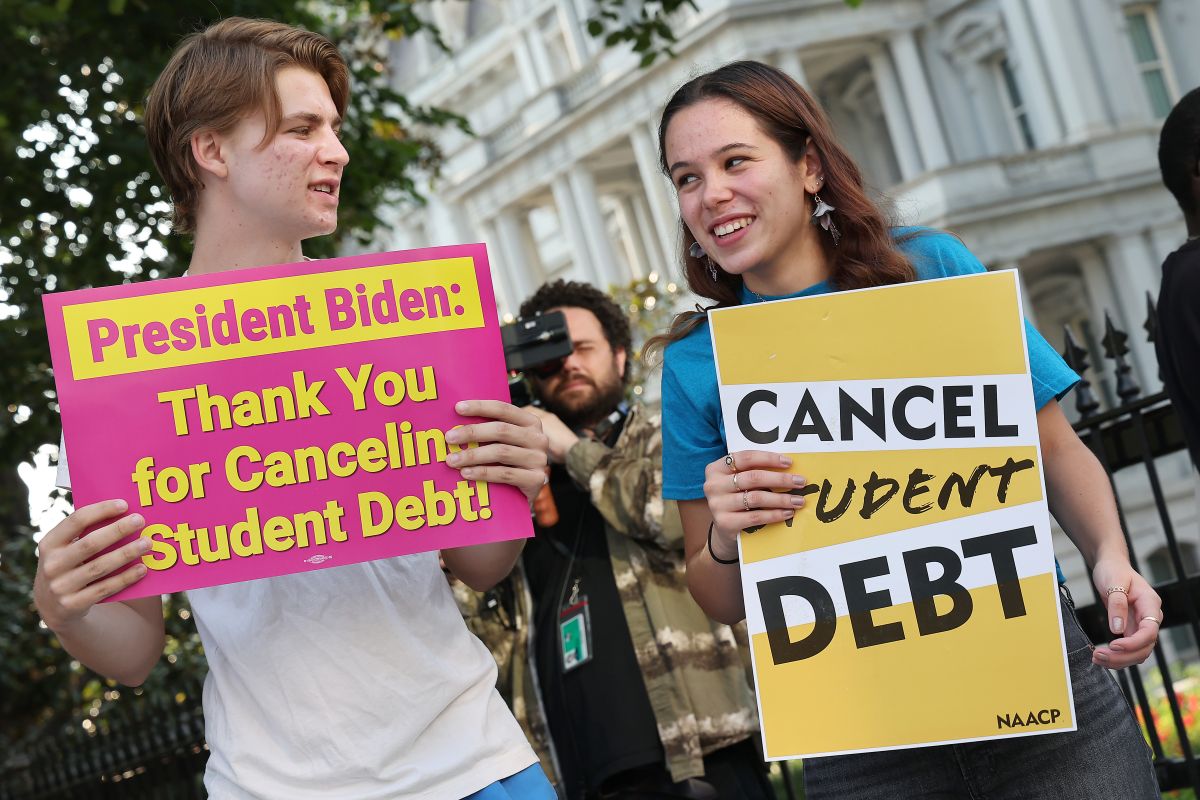The Joe Biden government reduced eligibility for its student loan forgiveness plan this Thursday, the same day that six Republican-led states in the country sued the Democratic president in an effort to block the entry into force of his plan student loan forgiveness.
Borrowers whose federal student loans would be guaranteed by the government, but held by private lenders will now be unable to receive debt relief.
Near 770,000 people will be affected by this change, according to an administration official.
For its part, the Department of Education said in a principle that loans, many of which were made under the old Federal Family Education Loan program and the Federal Perkins Loan program, would be eligible for one-time forgiveness action as long as the borrower consolidated their debt in the Program. federal direct loans.
Borrowers with private federal student loans that have yet to consolidate are so far out of luck, although the Department of Education said it is “evaluating whether there are alternative avenues” to provide relief.
Private federal student loan borrowers represent a tiny portion of the 43 million federal student loan borrowers. There are approximately 4 million borrowers with Federal Family Education Loans, but not all of those people may be eligible for the loan forgiveness plan, which also includes an income requirement.
“Our goal is to provide relief to as many eligible borrowers as quickly and easily as possible, and this will allow us to achieve that goal while continuing to explore additional legally available options to provide relief to borrowers with privately held FFEL loans and Perkins loans, even if FFEL borrowers could receive one-time debt relief without the need to consolidate.” , the Department of Education said in an emailed statement.
“Borrowers with private federal student loans who applied to consolidate their loans into Direct Loans before 29 September 2022 will get one-time debt relief. The FFEL program no longer exists and only a small percentage of borrowers have FFEL loans. This is a completely different program than Direct Loans,” the statement said.
On the other hand, the lawsuit was filed in Missouri federal court by the state attorneys general of Missouri, Arkansas, Kansas Nebraska and South Carolina, as well as Iowa legal representatives.
“In addition to being economically unwise and inherently unfair, the Biden Administration’s Massive Debt Cancellation is another example in a long list of illegal regulatory actions. No statute allows President Biden to unilaterally release millions of people from his obligation to repay loans they voluntarily assumed,” Nebraska Attorney General Doug Peterson’s office said.
Plaintiffs alleged that student loan servicers, including the Missouri State Higher Education Loan Authority, known as MOHELA, are harmed by Biden’s student loan forgiveness plan .
They allege that the plan creates an incentive for borrowers to consolidate MOHELA-owned Federal Family Education Loans into Mohela-owned Federal Family Education Loans into government-owned Direct Loans, “depriving them of (to MOHELA) from the continuing income it earns from servicing those loans,” according to the lawsuit.
The White House continues to argue that its student loan forgiveness plan is legal.
“Republican officials in these six states defend special interests and fight to stop relief for borrowers buried under mountains of debt,” White House spokesman Abdullah Hasan said in a statement. sent via email.
“The president and his administration are legally giving working and middle-class families a break as they recover from the pandemic and prepare to resume loan payments in January “, said to Earlier this week, a public interest attorney who is also a student loan borrower sued the Biden administration over the student loan forgiveness plan, claiming the policy is an abuse of executive power and would put a higher bill on him. of state taxes.
Also read:
- Mortgage rates in the US USA Add 6 Consecutive Hikes: FreddieMac
- Nearly half of US college students .worried about graduating into a recession
- U.S. Mortgage Rates Keep Rising: that of 30 years reaches 6.29%
